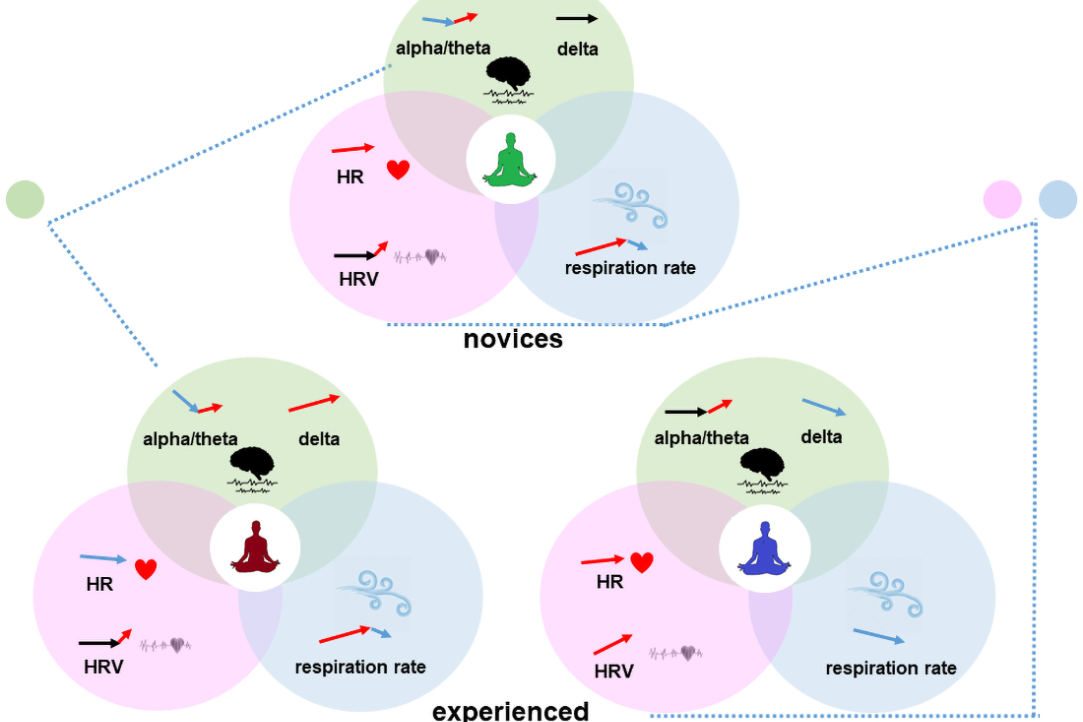Researchers from the Higher School of Economics found out that meditation affects people differently
A group of scientists from the Center for Bioelectrical Interfaces at the National Research University Higher School of Economics studied the activity of the brain and other body systems during meditation. In the course of the study, it was shown for the first time that by performing the same instructions, some people relax, while others concentrate. The study was published in the journal PlosOne.

In half of the subjects during meditation, changes in brain activity were observed (in particular, there was a decrease in alpha rhythm), indicating mental concentration. The other half of the experienced practitioners showed signs of bodily relaxation during the entire meditation, such as slowed breathing and increased heart rate variability, while the final stages of meditation and after the meditation were marked by increased alpha rhythm power, indicating mental relaxation. The results of the control group, people with no meditation experience, were about midway between the two groups of experienced meditators. They had no significant changes in either their measures of bodily relaxation or their measures of mental concentration.
"We have several hypotheses that may explain the results. We have already begun the experiments necessary to test them. One possible explanation is that each person has an innate predisposition to a particular physiological strategy for immersion in a meditative state. If this hypothesis is confirmed, it would mean that the use of standardized biofeedback-based meditation training devices might not only fail to produce the expected results, but might also prove harmful to some users. A separate study requires the question of whether one of the strategies may be preferable for the long-term positive effects of meditation," explains Maria Volodina.
Volodina M, Smetanin N, Lebedev M, Ossadtchi A (2021) Cortical and autonomic responses during staged Taoist meditation: Two distinct meditation strategies. PLoS ONE 16(12): e0260626. https://doi.org/10.1371/journal.pone.0260626


